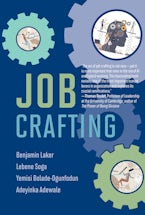Experts discuss improving job quality in low-wage industries including retail, residential construction, hospitals and long-term healthcare, restaurants, manufacturing, and long-haul trucking.
Americans work harder and longer than our counterparts in other industrialized nations. Yet prosperity remains elusive to many. Workers in such low-wage industries as retail, restaurants, and home construction live from paycheck to paycheck, juggling multiple jobs with variable schedules, few benefits, and limited prospects for advancement. These bad outcomes are produced by a range of industry-specific factors, including intense competition, outsourcing and subcontracting, failure to enforce employment standards, overt discrimination, outmoded production and management systems, and inadequate worker voice. In this volume, experts look for ways to improve job quality in the low-wage sector. They offer in-depth examinations of specific industries—long-term healthcare, hospitals and outpatient care, retail, residential construction, restaurants, manufacturing, and long-haul trucking—that together account for more than half of all low-wage jobs.
The book's sector view allows the contributors to address industry-specific variations that shape operational choices about work. Drawing on deep industry knowledge, they consider important distinctions within and between these industries; the financial, institutional, and structural incentives that shape the choices employers make; and what it would take to make more jobs better jobs.
Contributors
Eileen Appelbaum, Rosemary Batt, Dale Belman, Julie Brockman, Françoise Carré, Susan Helper, Matt Hinkel, Tashlin Lakhani, JaeEun Lee, Raphael Martins, Russell Ormiston, Paul Osterman, Can Ouyang, Chris Tilly, Steve Viscelli












